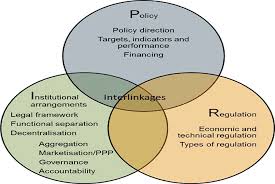
Comprehending the distinction between domestic and international HR practices is one of the most difficult and fulfilling elements of modern human resource management. What is gathering steam now is the fact that organizations are becoming more and more even superseding national borders and having the HR professionals perform in ways that are not only inefficient but actually as a whole fail to cover far reaching international workings of organizations. That shift in HR management on the domestic to international level entails basic changes in strategy, implementation, and execution that either make or break the prospect of an organization being globally successful.
One of the variables that proves to be one of the most influential in connection to differences between domestic and international HR practices is cultural distance. This is a multidimensional construct comprising language barriers, religion differences and social norms as well as business etiquette variance bearing significant effect to the HR strategies.
HR specialists find themselves working in a culture that is familiar to them and can apply a uniform strategy of recruitment, performance appraisal, and employee communicative basis. Yet in the international operations, cultural adaptation has to be applied at all levels. To take an example, whereas direct feedback may be appreciated in the American corporate culture, they may be considered disrespectful in the hierarchical Asian culture. This calls for a need to come up with performance management systems that are culturally sensitive and have a balance between what can be called culturally respectful systems and effective systems.
Employers are forced to spend a lot on cultural intelligence training and formulate region-based HR policies. Even recruitment process alone involves knowledge of local education systems, professional qualifications as well as progression in careers. When looking at these cultural complexities in international businesses, [StudyCreek.com](https://studycreek.com) also has extensive research that can guide international business students to give insights about cross-cultural management techniques and approaches.
The second very important moderating factor is that there could be significant differences among the countries in both legal and regulatory frameworks. When it comes to domestic HR practices, organization is done using one legal system which means that there are common policies and procedures. The international HR management however has to abide with conflicting employment laws, work regulations and statutory requirements which vary tremendously in different jurisdictions.
The practice of employment at will that is evident in the United States is totally the opposite of the securing of jobs on which the European countries depend. On the same note, necessary benefits, working hour over-limitations, and dismissal procedures vary greatly between zones. In Germany there is co-determination laws that guarantee employee representation on the corporate boards whereas in the other countries the traditional structure of hierarchy in management is still maintained.
Such regulatory disparities oblige international organizations to establish versatile HR structures, which make them compliant without affecting the organizational efficiency. Organizations will be forced to build legal competence in every jurisdiction of operation and in many situations, they have to collaborate with the local law firms and human resources consultancies. Its complexity requires advanced knowledge management systems, and constant regulatory changes tracking.
[DissertationHive.com](https://dissertationhive.com) offers the best academic research assistance to help students to research and understand the various complexities of international employment law.
The connection between the cultural distance and the differences in regulations poses compound issues on international HR management. The ability of organizations to balance local adaptability and global strategic integrity requires organizations to have adaptive capabilities that permit the quick response to ever-changing local market environment.
Effective practice in international HR Investments in local talent, cross-cultural training, and adaptable policy framework are necessary to successfully practice international HR. Digitalization of the HR processes can provide possibilities to standardize some of its functions with still keeping the possibilities of customization on a local level.
With the ongoing changes that globalization is facing, the HR professionals have to come up with competence that facilitates the harmonization of the domestic skills with the international complexity in order to achieve success of the organizations to different global markets.
Below is a sample question:
Discuss at least two of the variables that moderate differences between domestic and international HR practices.
Below is the answer to the sample question:
Course: Human Resource Management
Instructor: [Name]
Date:
The process of globalization in the affairs of business has essentially changed the face of having human resource management in a considerably different way that forms a different challenge that makes the international human resource practices to be different to what is practiced domestically. Whereas in domestic HR management the HR can deal with environments that are all familiar in terms of culture, law and economics, international HR management involves working with unfamiliar complex and highly multifaceted environments that need advanced adaptation strategies. It is always relevant to equip yourself with information on the variables controlling such differences whenever an HR professional aspires to have an effective global talent management strategy.
The process of HR practices entering the international sphere is not merely an extension of the current domestic policies to international scope. It has to be operated on a wide-ranged knowledge on how different environmental, institutional and organization factors can affect HR strategy design and practice. Such moderating variables pose special challenges that may considerably affect the performance of organizations, satisfaction of employees, and strategic performance in global affairs.
This nature of analysis focuses on four key variables which moderate the variations of domestic HR practices to international HR practices, they are cultural distance, legal and regulatory systems, degree of economic development and institutional settings. The variables all have their own challenges and opportunities which makes the approach to talent management and acquisition, talent development, talent compensation and talent retention differ across geographical locations.

In a domestic environment, the HR professionals can enjoy homogeneous cultural knowledge which allows standard methods of employee engagement, management of performance and organizational communication. Shared values in culture, similar educational experiences, and similar business come in place to ensure there is a common ground toward utilizing the same policies in a uniform manner. Nevertheless, the managerial practice of operating internationally means having to carefully adapt to local culture by taking into account the values, beliefs and behavior expectations.
The cultural distance has some strong implications especially in the recruitment and selection processes. Merit selection may be a common practice in an individualistic society but in collectivist one, the neighborhood harmony and the ability to establish relationships may be more valued. Cultural conditions where savings of face and overall achievement are vital will render performance evaluation systems based on direct assessment and personal performance obsolete. In the same manner, the compensation systems should consider cultural value towards inequality, indicators of status, and work-life balance preferences.
Cultural distance also necessitates a lot of adjustments in training and development programs. The culture difference in learning styles, relationship in authority and methods of transferring knows is quite significant. The interactive, participatory training orientation of the West could go against the hierarchical culture which encourages one not to challenge authority. The organizations would have to come up with culturally-specific modes of learning that would not violate local educational customs, but which would reach the global goals of competency development.
Another area, which cultural distance introduces significant differences is communication strategies. High context cultures are based on non-verbal communication and tacit understanding whereas the low context cultures favor explicit and direct communication. HR procedures, policies and employee communication should be modified to suit such basic differences in information processing and relationship formation.

International HR practices have basic difficulties brought about by differences in employment law. The idea of at-will employment in the United States stands out against the other side of the concept of job security in the European nations as in these countries there are documentation and consultation ratios, and even state sanctions on termination procedures. Such differences require HR policies to be specific to a country and be in line with local regulations but with strategic consistency throughout the world.
The laws regarding compensation and benefits also differ a good deal when it comes to international markets. The requirements on mandatory benefits, social security contributions, entitlement to holidays, and working time laws are very different across countries. The law of co-determination in Germany mandates worker representation on the boards of companies unlike other countries where hierarchy is the order in the management. The 35-hour work week in France is contrary to working longer hours embraced at other jurisdictions.
International HR management also faces further challenges under the structures of labor relations. Collective bargaining is a requirement in some countries that are better off having strong traditions of unionization whereas some other countries have more flexible employment relationships. Labor relations in the region are the key to successful relationships with the employees and prevent the development of expensive debates.
Regulatory requirements go work beyond the employment law to also include such as the immigration laws, protection of the data laws, and any specific regulations to that particular industry. General Data Protection Regulation, the law protecting data in the European Union (GDPR) imposes new and tough demands on how an employer should manage personal information of its workers, that other judicial systems might lack. Organizations need to establish complex systems of compliance management which help them to ensure that they operate in compliant requirement of local requirements and in flexibility of running the organization.
The compensation policies must be well-tuned according to the economic climate in the given place. Uniform international wage rates might not work whenever the expenses of living and the rates of pay difference between nations are strikingly different. The companies demand a balance of their internal equity issues and complementing them to the local market competitiveness with the factors of currency fluctuations and economic stability.
Challenges of being in position and the difference in the infrastructure of education affect the strategies on recruitment and development. In the developed markets, there could be a large pool of talent, whereas there is much need to invest in development of talent and capability in the emerging markets. In case of the available local talent pools, organizations need to evaluate their sourcing strategy and come up with the right sourcing strategy which takes into account immediate requirements and the long-term development goals.
The dissimilarity in the technology infrastructure also affects the delivery of HR services. Although the developed markets might be capable of supporting complex HRIS systems and advance communication channels, the developing markets might be in need of less moderate paper-based procedures. Flexible models of service delivery have to be developed by organizations that will support different technological capacities and still provide quality standards in the service delivery.

A fourth variable of importance is altering variation amid internal and external HR practices and is referred to as the institutional environment. This includes the larger social, political and economic framework that informs the business activity and the employee relations in the various nations.
The HR risk management approaches are affected by political stability and quality of governance. They need more advanced contingency planning and risk reduction strategies in countries with unpredictable situations of politics. The political risk factors are also to be taken into account during long-term HR-investments and strategic decision-making.
There are country differences in the development of educational systems and the institutions dedicated to professional development which affect the talent development strategies. Organizational planning requires institutions to be knowledgeable on the local standards of education, professional certification, and personnel training track in order to formulate effective career development strategies.
The systems of social safety net have an impact, as well, on the formation of the HR strategy. The various benefits strategies that countries with universal social welfare systems demand could differ with those with minimal government assistance systems. In the creation of employee value propositions, organizations are subject to evaluating the prevailing local social protection systems.
The moderating variables of differences between domestic and international HR practices offer intricate problems to resolve and needs advanced management tactics. The cultural distance, legal and regulatory system, economic development, and institutional environments combine to form distinctively different context where the environment requires adaptive response by HR strategies.
Effective international HR management demands effective organization capabilities with which the organization can steer clear through these moderating variables without losing its strategic coherence and functional output. Companies are required to invest in cultural smartness, laws expertise, market intelligence and dynamic administration structures that allow adapting to various international surroundings.
These moderating variables are necessary in order to understand how HR professionals can come up with effective global talent management strategies that can help the organization succeed in various international markets without disregarding local contexts and requirements.
Delivering a high-quality product at a reasonable price is not enough anymore.
That’s why we have developed 5 beneficial guarantees that will make your experience with our service enjoyable, easy, and safe.
You have to be 100% sure of the quality of your product to give a money-back guarantee. This describes us perfectly. Make sure that this guarantee is totally transparent.
Read moreEach paper is composed from scratch, according to your instructions. It is then checked by our plagiarism-detection software. There is no gap where plagiarism could squeeze in.
Read moreThanks to our free revisions, there is no way for you to be unsatisfied. We will work on your paper until you are completely happy with the result.
Read moreYour email is safe, as we store it according to international data protection rules. Your bank details are secure, as we use only reliable payment systems.
Read moreBy sending us your money, you buy the service we provide. Check out our terms and conditions if you prefer business talks to be laid out in official language.
Read more